It’s the tail-end of 2013 and once again, we are faced with the possibility of the dreaded real estate bubble – this time with the recent announcement of the United States (US) Federal Reserve (The Fed) [the equivalent of the Bangko Sentral ng Pilipinas] that it will start tapering in January 2014. But what exactly is tapering and how does it affect the Philippine real estate market?
What is Tapering?
The word “taper” means to diminish or to reduce. In this case, the Fed will be reducing its asset purchases under their Quantitative Easing (QE) program.
The actual announcement by Mr. Ben Bernanke of the US Fed is as follows:
“As you know, we’ve been purchasing $85 billion per month in longer-term treasury and agency mortgage-backed securities. Starting in January, we will be purchasing $75 billion of securities a month, reducing purchases of treasuries and mortgage-backed securities by $5 billion each.”
What is Quantitative Easing?
What then is Quantitative Easing (QE) in the first place, and why was it done to begin with? According to The Economist, QE is “the creation of money to boost the economy.” Here is a short video explanation:
You may also refer to my old post where QE was discussed. Basically, QE is a very controversial measure which was done to prevent a massive recession in the US. I think it may have achieved its objective in the short-term but the long-term effects have yet to be seen completely.
Remember the US government shutdown last October 2013? Evidently, the US government is spending much more than what it is earning and thus is in deep sh*t. US President Obama signed a bill last October which raised the debt ceiling until February 7, 2014 and just signed another budget deal very recently which “puts off the risk of a government shutdown for the next two years.”
Hopefully, the US will be able to fix its fiscal woes and the QE tapering will proceed smoothly until normalcy is regained. In the event of a US default on debts, the ripples all over the world will be catastrophic. The Philippines, being a small country, is bound to be affected by a US default.
What does US tapering have to do with Philippine real estate?
This has been my question as well. A few weeks ago, a post by “bubbleologist” Jesse Colombo at Forbes.com re-ignited the real estate bubble debate. A lot of people gave rebuttals, including Mr. Amando Tetangco of the Bangko Sentral ng Pilipinas (BSP), and Jesse wrote a counter-rebuttal. Many points have been raised (actually, they are not new). To be honest, the comments are more interesting.
Posts that are pro- and anti-real estate bubble went viral over the past few weeks, and, coupled with the plunge of the Philippine Stock Exchange (PSE) amid US Fed tapering news, put the bubble possibility at the forefront of people’s consciousness.
The different issues related to the perceived real estate bubble have already been discussed my previous posts – Philippine Property Outlook 2013 where the possibility of a real estate bubble was discussed, Philippine Property Outlook Q2 2013 where Quantitative Easing was also discussed, and Ian Mariano’s guest post about the coming real estate bubble. I realized that the usual initial reaction of Filipinos (me included) would be to be defensive, but it’s good to analyze the issues objectively.
The main issue, I think, is that because of the increased money supply in the Philippines caused in part by the “hot money” which came from the US due to QE, the interest rates are at an all-time low.
With the seeming strengthening of the US economy, the “hot money” is expected to go back to the US, and this may thus cause an increase in interest rates in the Philippines. The increase in interest rates may have an impact on those who borrowed money to purchase homes but with interest rates that are not fixed for many years.
Thus, in case the interest rates rise sharply, some people may not be able to pay the amortizations and their properties may end up getting foreclosed.
What can we do to protect ourselves ?
Some say that the QE tapering has been long expected, and its effects have already been factored in, so there may be no significant changes. Those who want to be protected, though, may lock in the current low fixed-interest rates with the longest possible term to avoid surprises.
- Highly recommended: Low home loan rates – what you need to know before it’s too late
Another option is to buy properties now in anticipation of increased rental demand in the future. Here is a video of an entity in the US doing this option:
The BSP has reassured the public that it is ready and able to use economic tools to counter the expected outflow of money from the Philippines back to the US, so that the Philippines will not be severely affected. For real estate in particular, I think investments may not be pulled out as quickly as in the stock market, so ideally there should be no abrupt negative effects.
Where are we now in the real estate cycle?
It has been said that real estate goes through cycles, so let’s take a closer look at the real estate cycle, keeping in mind the possible effects of QE and other things happening all over the world.
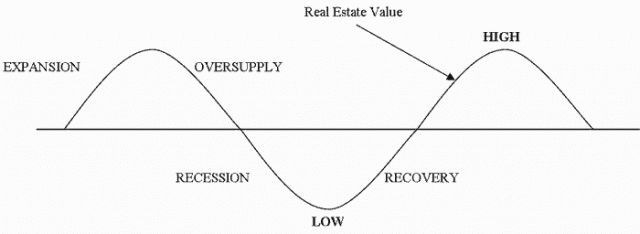
For now, I think we will agree that real estate is currently experiencing a boom, but is probably moving towards an oversupply in some areas and market segments.
Technically, a big part of the Philippine population still needs housing, but there may be an issue as to whether the housing units being produced match the capability of the buyers to pay. I think that the housing units may still be taken up if the prices are lowered. It is possible that sellers who need cashflow may be forced to offer lower prices in case the sales required to maintain their businesses are not met.
Infographic: Real Estate Market Recovery
The infographic below put it concisely: the cycle is basically due to the balancing of supply and demand which is never really balanced at any one time.

Real Estate Market Recovery Blueprints
The Philippine economy in general
Moody’s, the last of the three major ratings agencies, has granted the Philippines an investment grade rating last October 2013. 3rd Quarter Gross Domestic Product (GDP) growth was at 7%. Public-Private Partnership (PPP) projects may have been delayed, but some are already underway: The GMR-Megawide consortium won the Mactan Cebu International Airport PPP, the Philippine Orthopedic Center PPP was bagged by the Megawide-World Citi consortium, to name two. The last day to submit bids for the LRT 1 Extension project that will service those living and working in Cavite has been slated on April 28, 2014.
Typhoon Haiyan/Yolanda and the major earthquake in Bohol wreaked major havoc but it is also expected that the rebuilding would somehow boost the economy.
According to Moody’s Analytics, as quoted in the Philippine Star, the Philippines is “expected to sustain its strong growth next year and remain as one of the world’s fastest-growing economies.” Citibank, on the other hand, has increased its growth forecast for the Philippines in 2014.
Balancing the positive news above, I believe, are the issues on corruption related to Priority Development Assistance Fund (PDAF) and Disbursement Acceleration Program (DAP). The perception that the Bureau of Internal Revenue (BIR) is not business-friendly may also have a negative effect.
Welcome, 2014!
As I see it, there are indeed many issues that may affect the Philippines coming not only from the United States, but also from other countries all over the world.
Many have already said that the Philippines has strong fundamentals and I share the same belief.
We have risk areas which are being managed, and there are some which we will only see come soon (for example, upon turnover of condo and housing units). The Bangko Sentral ng Pilipinas (BSP) has tools which it can use to manage the economy in light of world developments.
If you think about it, many people have been talking about a possible real estate bubble/crash for many years now but it has not happened. So worrying may not have been very productive. Remember Matthew 6:27 which says:
“Who among you by worrying can add a single moment to your life?”
2013 has been a good year, in my opinion. Inspite of all the natural calamities and trials that hit the Philippines, let us not forget to count our blessings.
In closing, since it’s not really fun to be waiting for the sword of Damocles to drop, let’s just welcome 2014 with a joyous heart and with faith that the Lord will be with us and our country all the way. Of course, we are not in favor of irrational exuberance – let’s just be cautiously optimistic and conservative, and manage our personal risks actively.
May God bless us all.
Happy New Year!





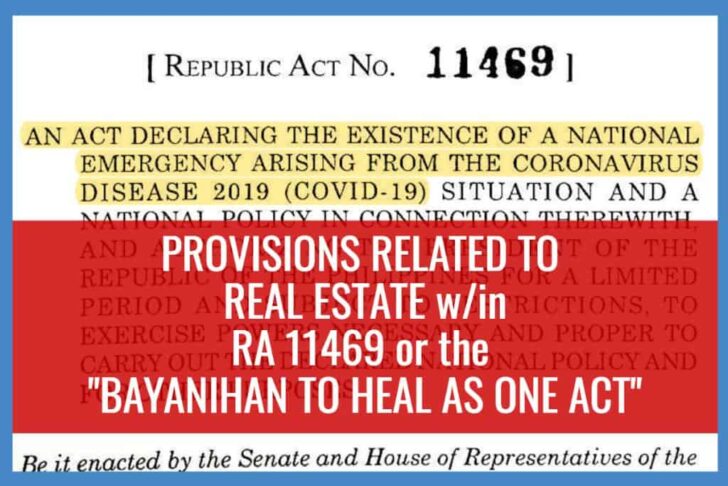
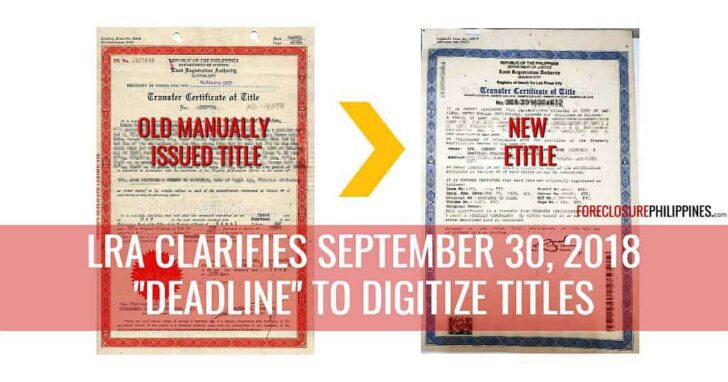
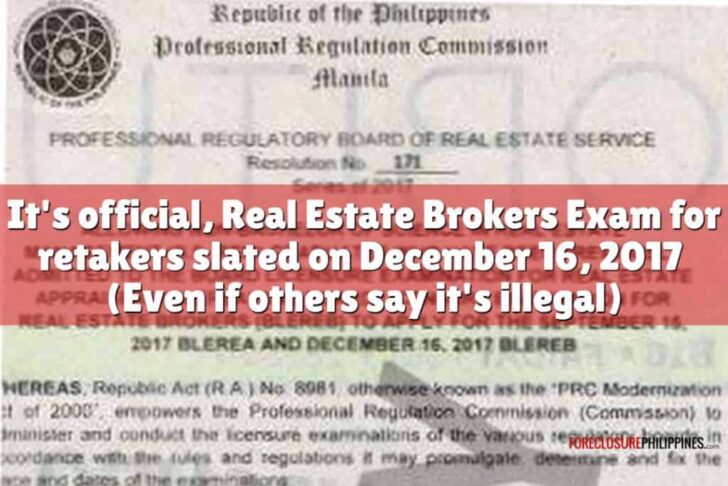
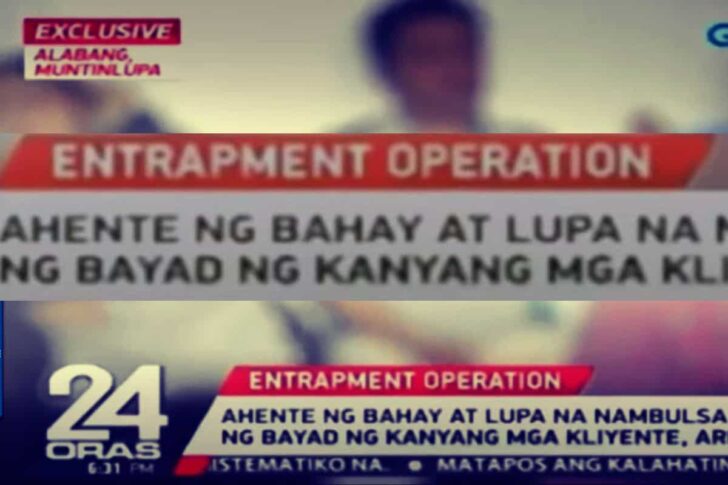
“If you think about it, many people have been talking about a possible
real estate bubble/crash for many years now but it has not happened. So
worrying may not have been very productive. Remember Matthew 6:27 which
says:”
This is a misleading statement, Cherry.
When you say “many people have been talking about a crash for many years now but it has not happened” and connect it with the generally, negative perception attached to “worrying” this gives a false assurance because of the absence of a Philippine housing crash. You need to tell more about the specific predictions and present it with details that’s happened from the time of “prediction”. I understand this might have opened a whole new set of arguments and research — which might not have been your original intention in the above article.
But that’s why I think this could mislead people — however unintended, you have unwittingly shared your generally rosy and hopeful picture of the future of the Phil. housing market with the veneer of balanced views based on what you said in the early part of the article.
First, it has not been “many” years. I’ve followed your blog and the first real “bubble talk” probably started when I wrote at the close of 2012….. “An Open Letter to Philippine President Benigno Aquino III: Now is the time to prepare for a massive housing crisis in Asia”…. (December, to be exact…https://www.foreclosurephilippines.com/2012/12/philippine-property-outlook-2013.html) . That was 13 months ago.
Before that, I’m sure people–a few bloggers, commenters, pundits–have casually mentioned bubbles in your market — but these have been generally emotion-driven, not backed with a coherent and logical argument. I don’t agree with those views as much as I don’t agree with blind faith that this uptrend will only continue in the near future. They seem to blame Pres. Aquino and his administration.
To put blame on the current administration is simply unfounded and ridiculous. The fact is they have done a heroic job on laying the foundation for a brighter future — the best that I’ve seen in my lifetime. But this bubble problem, as I have said in the past, is simply too big for Pres. Aquino or Sec. Purisima to fix. I have not found one example in the past where a government successfully prevented a already-full blown bubble. Because severity is often severely underestimated–people don’t factor in the “domino like effect” of a housing crash. And when they do step in, it’s too late.
Ms. Espiritu wrote in 2011 here in this blog, “Will there be a Real Estate Bubble in the Philippines?” but that article with major counter points like: “We’ve been there. Banks won’t allow it the second time around.” and “Most of our buyers are end users of the properties, not speculators” did not present facts but sounded more from a personal perspective.
And here lies why I would even write this comment and our biggest difference… : “People hope when it’s time to fear, and fear when it’s time to hope.” I believe it’s time to “fear” — time to prepare for a famine. You seem to think to not worry too much about this bubble until proven otherwise. I’ve strongly suggested that investors — both property and stocks — to START cutting your losses short..NOW. You seem to be waiting to be proven wrong. I hope Filipinos get out and take whatever profits they may have on paper, you seem to imply not too worry too much and ride it out.
So what should people believe? I say let’s start with current facts. For now, you can forget my plea for a future financial typhoon in the bursting of the Phil. housing bubble. Let’s look at what’s happening:
My case: ROI (return on investment) and risk. Investment is generally defined as “calculated risk”. I want to make a case that with the returns in the last year in the PSEI (stock market) and probably the real estate market, too; It is NOT worth the returns. This is based on current reality, not tomorrow, not next year, I’m talking about today. Profits in the stock market have not gone up since June 2013.
When I wrote to “cut your losses short” in June 2013, the stock market then and now looks almost identical. And if you want to follow the money — what the big investors are doing — they are showing less and less confidence in emerging markets like Phils. : “Goldman to JPMorgan Say Sell Emerging Markets After Slide” http://www.bloomberg.com/news/2014-01-07/goldman-to-jpmorgan-say-sell-emerging-markets-after-slide.html
Why would you bet against giant institutional investors? Because even if they’re wrong, history is chalk-full of lessons that when big money moves — the market moves with them. Don’t fight the market. While other might suggest, “buy on the discount”..how do you defend this when in the last seven months market has basically plateaued?
I am not here to win an argument against you, Cherry. As I have said here before, how I pray that I will be proven wrong. But there’s too much at stake — lives, family peace and lifetime of savings are at stake. Doubt me for my future “predictions” I can understand that, but look at the present….look at it with intellectual honesty…and you will see that there simply is too much risks in the market (contrary to people’s rosy feelings) — we are on the top of a cycle. PSEI with all of the good news and “solid fundamentals” have stayed the same, and drastically went down, at any hint of U.S. QE easing. (Look at the Bloomberg charts and compare dips and spikes to U.S. FED Q.E. announcements)
Now is NOT a good time to invest. Pull money out.
I would suggest strongly that information from any central bank,particularly the Fed, should be taken 180 degrees from what they say.
The fed has destroyed the us dollar since their inception in 1913, losing 97% of the dollars value. every country holding these dollars have had this inflationary effect of stealing our wealth, our labor, our life sweat, for some financial engineering gone astray, more precisely into the hands of these banksters.
My guess is that all currencies will be devalued due to the excess fiat money printed. A reset deflation of asset prices is necessary, and we can all pray for a total collapse of the current evil financial system, and go back to an honest money system described in the us constitution. And the Philippines can go back to a gold backed (audited continuously) currency.
Real estate will be slightly affected in the Philippines but not to the extent in the us where the economic engine per GDP is less than 1%.